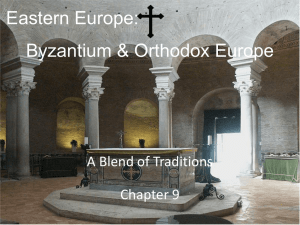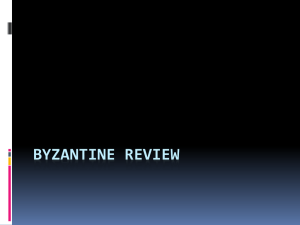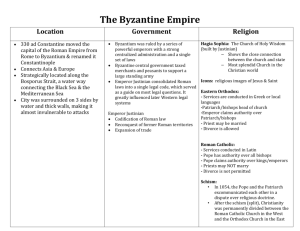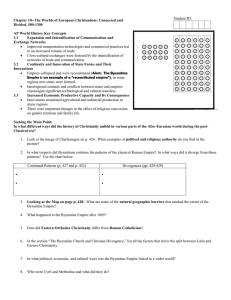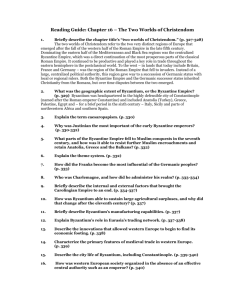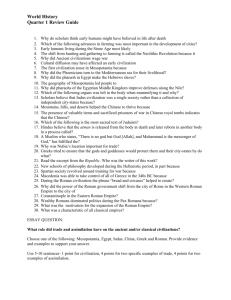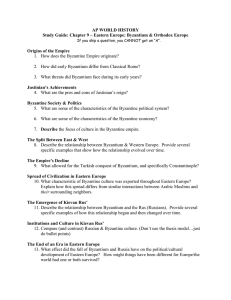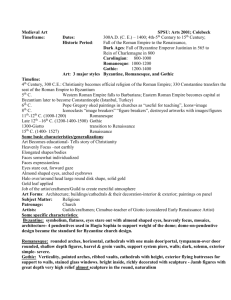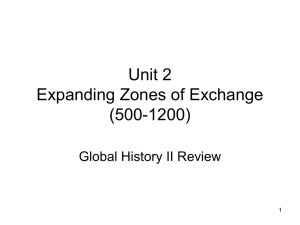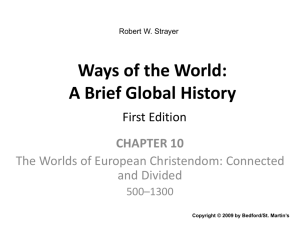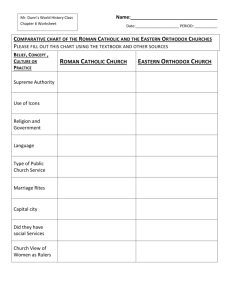Ch 10 Review Packet
advertisement
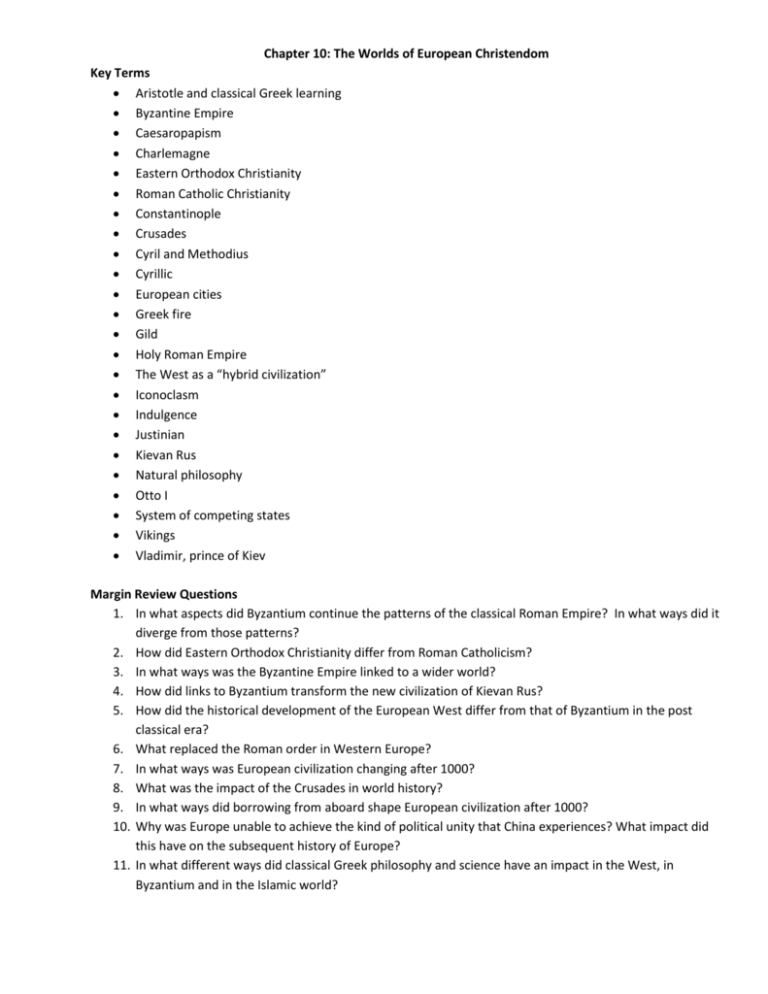
Chapter 10: The Worlds of European Christendom Key Terms Aristotle and classical Greek learning Byzantine Empire Caesaropapism Charlemagne Eastern Orthodox Christianity Roman Catholic Christianity Constantinople Crusades Cyril and Methodius Cyrillic European cities Greek fire Gild Holy Roman Empire The West as a “hybrid civilization” Iconoclasm Indulgence Justinian Kievan Rus Natural philosophy Otto I System of competing states Vikings Vladimir, prince of Kiev Margin Review Questions 1. In what aspects did Byzantium continue the patterns of the classical Roman Empire? In what ways did it diverge from those patterns? 2. How did Eastern Orthodox Christianity differ from Roman Catholicism? 3. In what ways was the Byzantine Empire linked to a wider world? 4. How did links to Byzantium transform the new civilization of Kievan Rus? 5. How did the historical development of the European West differ from that of Byzantium in the post classical era? 6. What replaced the Roman order in Western Europe? 7. In what ways was European civilization changing after 1000? 8. What was the impact of the Crusades in world history? 9. In what ways did borrowing from aboard shape European civilization after 1000? 10. Why was Europe unable to achieve the kind of political unity that China experiences? What impact did this have on the subsequent history of Europe? 11. In what different ways did classical Greek philosophy and science have an impact in the West, in Byzantium and in the Islamic world? Big Picture Questions 1. How did the histories of the Byzantine Empire and Western Europe differ during the era of third-wave civilizations? 2. What accounts for the different historical trajectories of these two expressions of Christendom (Roman Catholicism and Eastern Orthodox)? 3. How did Byzantium and Western Europe interact with each other and with the larger world of the postclassical era? 4. Was the civilization of the Latin West distinctive and unique, or was it broadly comparable to other third-wave civilizations? 5. How does the history of the Christian world in the postclassical era compare with that of Tang and Song dynasty China?
